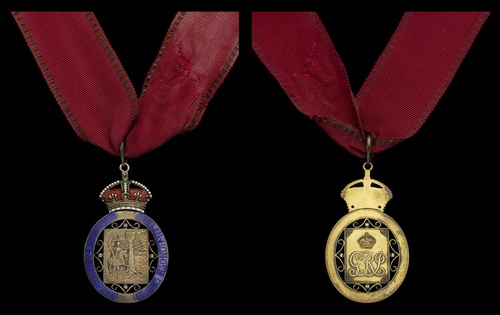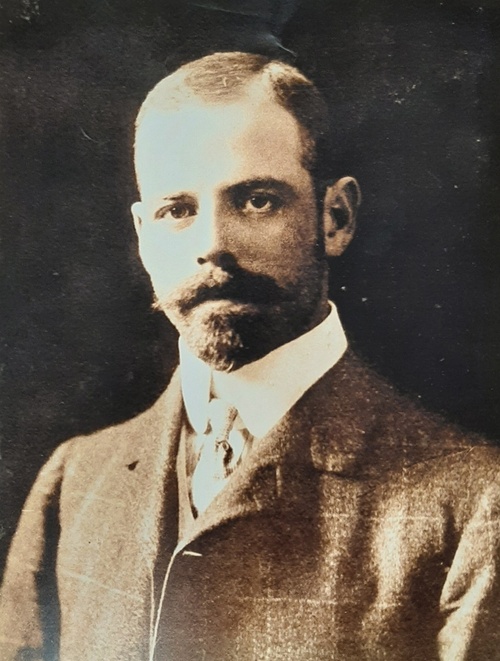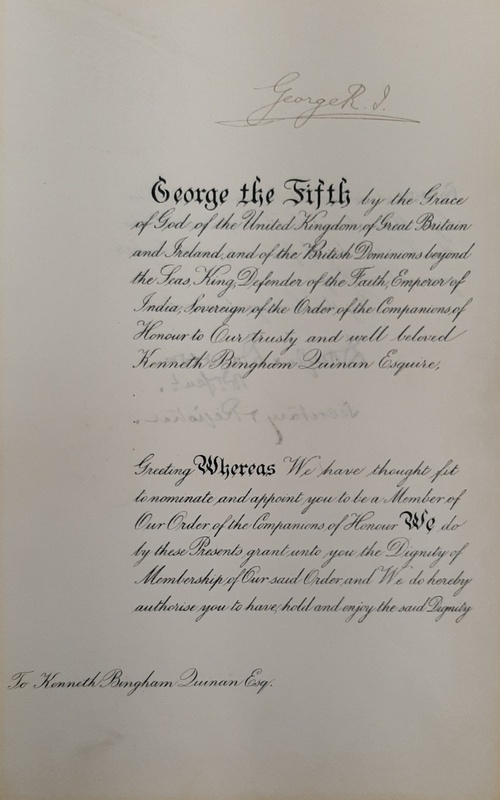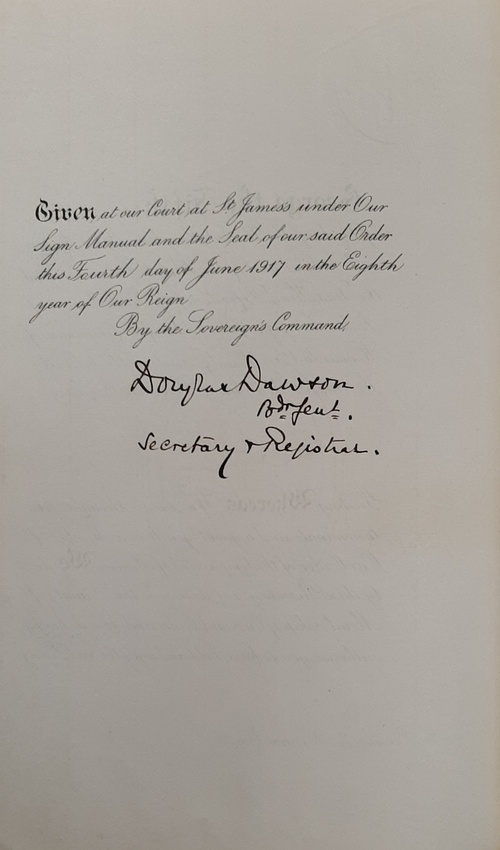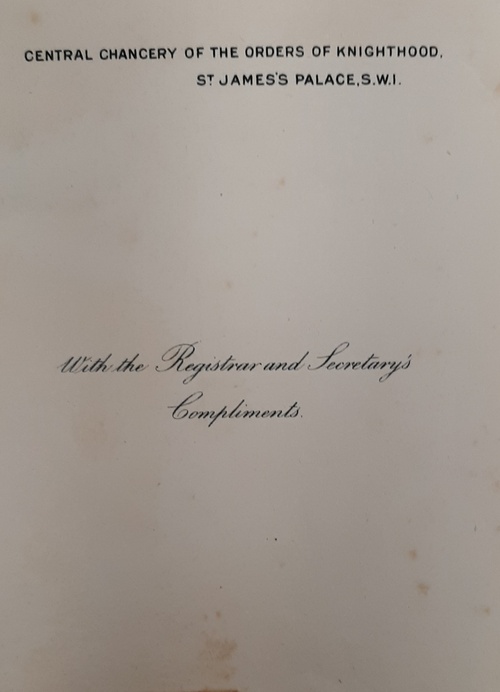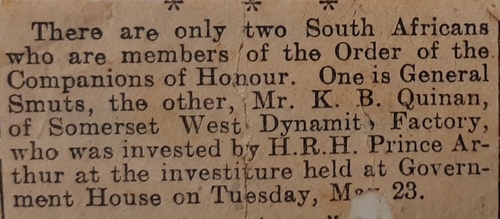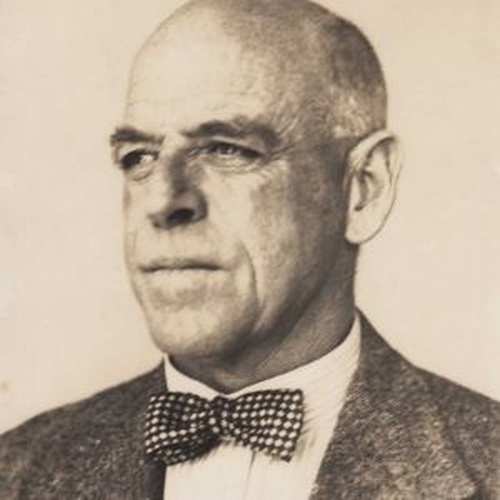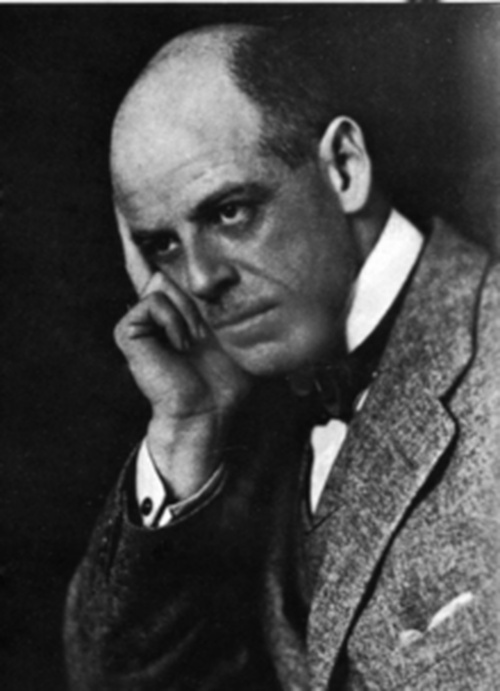Auction: 24003 - Orders, Decorations and Medals
Lot: 225
Sold by Order of a Direct Descendant
The Order of the Companions of Honour awarded to Kenneth B. Quinan, an American citizen by birth and the first to be given the Order, who was responsible for the construction and operation of a number of munitions and explosives ingredient factories in Great Britain, playing a vital role in the War effort during the Great War, he was publicly thanked by David Lloyd George in the House of Commons for his work
The Order of the Companions of Honour, Member's (C.H.) neck Badge, G.V.R., silver-gilt and enamel a little enamel damage, otherwise good very fine, with original neck riband
C.H. London Gazette 4 June 1917
Kenneth Bingham Quinan was born in New Jersey in 1878, the sixth son of Henry Julius Quinan, who had served as Aides-de-Camp to Stonewall Jackson during the American Civil War. The family was of Protestant Irish origin.
Quinan joined his uncle W. R. Quinan working in a Calafornia industrial explosives factory in 1890, despite having no formal qualifications in chemistry or engineering at that age. Under his uncle's instruction he acquired considerable experience in the technology of explosives manufacture. His uncle was hired by Cecil Rhodes to build a factory in South Africa to supply explosives for the De Beers mines and young Quinan joined him in 1901 as General Manager to the factory in Somerset West near Cape Town.
By 1909, this was the second biggest explosives factory in the world. Quinan proposed that the company also manufacture glycerine, an essential ingredient in the explosives process. This plant was completed as the Great War started, assuring the mining industry and the South African economy, which largely depended on the output of the mines, would continue to be viable during the war.
With the outbreak of the Great War, Britain required to build up its own supply of explosives for munitions. Lord Moulton, chairman of the committee on high explosives, determined that two new factories should be built. As all the British experts were already employed, he requested that an expert from South Africa be found. Quinan was selected and immediately set sail for Great Britain. He was later followed by several other senior staff from the South African factory.
During the war, Quinan was responsible for the design, construction and proper operation of a number of large munitions and explosives ingredient factories in Britain. He also wrote many technical reports and even oversaw the activities of the South Africa works.
In 1917 he recived the Order of the Companions of Honour and was the first American citizen to receive the new award, of the 17 who were gazetted the award on 4 June 1917. He was additionally awarded a Croix de Guerre by the French Government. He was additionally offered a Knighthood however he declined this being an American citizen. The Prime Minister David Lloyd-George publicly thanked him in the House of Commons:
'It would be hard to point to anyone who did more to win the war than Kenneth Bingham Quinan.'
After the end of the war, Quinan returned to South Africa where he continued to work for De Beers at the Somerset West complex. He also became the first Vice-President to the Institution of Chemical Engineers and developed several new processes and increased the output. On 23 May 1923 he received his insignia at Government House from H.R.H. Prince Arthur, being married the same year, deciding to retire to run a fruit farm the following year. Never happy with a quiet life, Quinan spent his time in researching and improving the production of fruit for export, specialising in grapes. In 1939, with the outbreak of the Second World War, his expertise was again sought by the British and South African governments as an advisor on chemical defence matters and to oversee ordnance factories built in South Africa. He died at his desk at his farm on 26 January 1948.
Sold together with the following archive comrising:
i)
Case of issue for the Companion of Honour
ii)
Certificate for the award
iii)
Wallet, embosssed with his initials in gold on the outside and again in full on the inside, with further gold edging.
iv)
White metal vesta case with initials engraved to one side.
Subject to 20% VAT on Buyer’s Premium. For more information please view Terms and Conditions for Buyers.
Sold for
£2,800
Starting price
£2800

